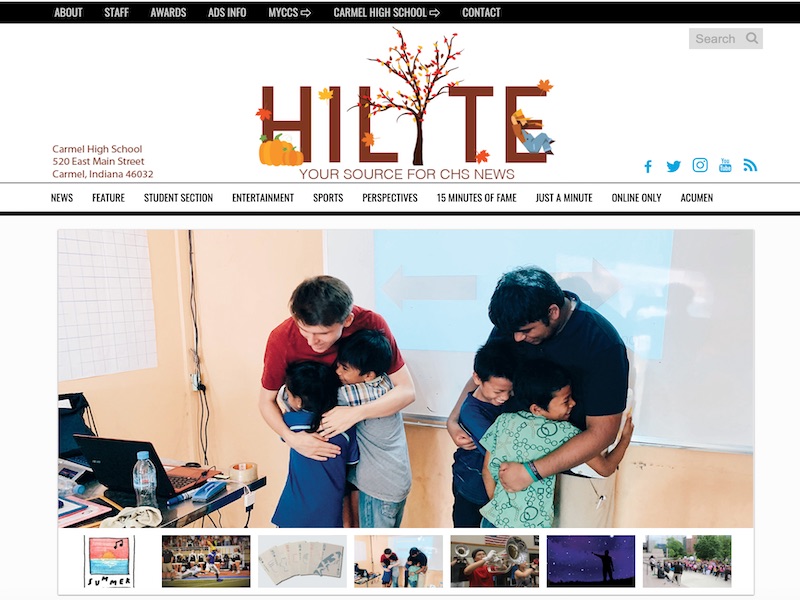Top Guidelines Of News Websites
Top Guidelines Of News Websites
Blog Article
4 Easy Facts About News Websites Described
Table of ContentsThe Ultimate Guide To News WebsitesNews Websites - QuestionsSome Known Factual Statements About News Websites Some Known Details About News Websites The 15-Second Trick For News Websites
It was down in the UK and Brazil yet up some other nations, such as Greece, Bulgaria, and Poland (News Websites). This year, for the very first time, we inquired about the different methods that individuals prevent the news and located that around half of avoiders (53%) were trying to do so in a broad-brush or periodic method for instance, by switching off the radio when the news came on, or by scrolling past the information in social media sitese.g. scrolling past information, changing networks when information comes on. of avoiders inspect resources much less usually. e.g. limitation to particular times of day, shutting off notices, etc. of avoiders prevent some subjects. e.g. topics that lower mood or boost anxiety. You stated that you attempt to actively stay clear of news.

I'm possibly choosing to learn more light-hearted stories than I made use of to at the minute. M, 51, UK Switching my back on information is the only means I feel I can deal often. I have to knowingly make the effort to avert for the purpose of my very own psychological wellness.
The News Websites Statements
Discerning avoidance of Ukraine information was highest in most of the countries closest to the conflict, reinforcing findings from our additional study last year, not long after the battle had begun. Our information might not suggest an absence of passion in Ukraine from close-by countries but rather a need to manage time or safeguard psychological health and wellness from the really real horrors of battle.
Comparing Finland with a politically polarised country such as the United States (see following graph) that is less impacted by the battle, we locate a very different pattern of topic avoidance. In the United States, we find that consumers are most likely to avoid subjects such as national politics and social justice, where debates over problems such as gender, sexuality, and race have become extremely politicised.
American national politics are rather toxic these days. I discover occasionally that I need to detach from stories that just make me angry. F, 61, USA For some people, bitter and divisive political disputes are a factor to shut off information entirely, however, for some political upholders, avoidance is frequently concerning shutting out point of views you don't intend to hear.

A Biased View of News Websites
Some are seeking to make news more obtainable for hard-to-reach groups, widening the news schedule, commissioning even more inspiring or favorable news, or welcoming useful or services journalism that give individuals a feeling of hope or personal agency. In our survey this year, we asked participants regarding their interest in these various strategies.
This describes click here for more info why tales like Ukraine or national politics execute well with news regulars however can at the same time turn much less interested users away (News Websites). Careful avoiders are less thinking about all sorts of information than non-avoiders but in family member terms they do seem to be more interested in favorable or solutions-based news

Facts About News Websites Revealed
2023). This may hold true in the minute, however in time it seems to be leaving lots of people vacant and much less satisfied, which might be threatening our connection with and count on the information. Throughout markets, overall rely on news (40%) and count on the sources people utilize themselves (46%) are down by a better 2 portion points this year.
Through the rear-view mirror, the COVID-19 trust bump is plainly visible in the complying with chart, though the instructions of travel after that has been imp source blended. In many cases (e.g. Finland), the trust fund boost has actually been maintained, while in others the upturn looks even more like a blip in a story of ongoing long-lasting decrease.
Several of the highest reported degrees of media objection discover this are found in nations with highest levels of mistrust, such as Greece, the Philippines, the USA, France, and the UK. The least expensive degrees of media criticism frequent those with higher levels of depend on, such as Finland, Norway, Denmark, and Japan.
The 25-Second Trick For News Websites
This year we asked respondents regarding their preferences for text, audio and video clip when eating information online. Typically, we locate that the bulk still prefer to read the information (57%), instead than watch (30%) or pay attention to it (13%), however more youthful people (under-35s) are a lot more most likely to pay attention (17%) than older teams.
Behind the standards we discover considerable and shocking country differences. In markets with a strong analysis practice, such as Finland and the UK, around 8 in ten still prefer to read online information, yet in India and Thailand, around 4 in ten (40%) say they prefer to see information online, and in the Philippines that percentage is over half (52%).
Report this page